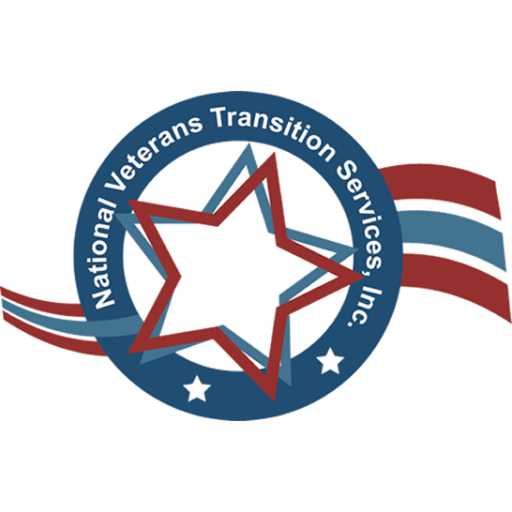The military veteran population continues to grow nationwide as the conflicts in Iraq and Afghanistan, namely Operation Enduring Freedom (OEF) and Operation Iraqi Freedom (OIF), draw down. Many veterans and their families, in turn, face difficulties as they return to civilian life. At the extreme, there are the physical injuries, the stressful toll from Post-Traumatic Stress Disorder (PTSD) that can increase the risks of depression and substance abuse, the weight of military sexual trauma, the complications from Traumatic Brain Injury (TBI), and the harsh realities of rising numbers in veteran incarceration and suicide. At the very least, veterans contend with both the struggle to find employment during a tough economy and the challenges of re-adjusting to the civilian culture they had previously left behind.
Conspicuous in its sizeable military presence, San Diego is also home to one of the largest veteran communities in the country. Sobering statistics have shown that amongst the San Diego homeless, one in four is a veteran. Moreover, according to the California Department of Veterans Affairs, “OEF/OIF Veterans find themselves in a downward spiral towards homelessness within 3 years, unlike their Vietnam counterparts, whose circumstances caused them to fall into homelessness within 13 years.” Equally significant, the unemployment rate for Iraq and Afghanistan veterans in San Diego is 11.5 percent, whereas for those veterans aged 18 to 24 their unemployment rate can be as high as 27 percent.
Meanwhile, the Rand Corporation in recent years released data stating that “nearly 20 percent of present-day veterans reported depression or PTSD, while 19 percent said they had suffered a TBI.” Furthermore, the Student Veterans Association (SVA) in late 2011 conducted a study of 525 student veterans in which they found that 46 percent of said students had contemplated suicide, which is in stark contrast to the 6 percent of nonmilitary students reported in a 2010 survey by the American College Health Association. Even more worrisome, the SVA study documented that “20 percent of those student vets who had contemplated suicide had in fact devised a suicide plan, which is regarded as an indication of intent.”
After assessing the issues surrounding veteran reintegration, Retired US Navy Rear Admiral Ronne Froman and Retired Master Chief Petty Officer Maurice Wilson determined that a cognitive-behavioral intervention strategy would better serve the veteran’s reentry into the civilian world. In so doing, Froman and Wilson founded the San Diego-based 501 (c)(3) organization, National Veterans Transition Services, Inc (NVTSI).
CEO Froman and President Wilson ascertained that bridging the gap between the military and civilian worlds—through behavioral training, social cognitive theory, and self-regulatory mechanisms—would be the touchstones to helping veterans acclimatize to their new lifestyles. Veterans have the unique position of having been immersed in a structured mindset. By its very nature, the military is an environment run at a more accelerated pace than the life civilians are accustomed to. As such, attempts to return to the pre-war mold would invariably be met with some internal resistance. In the military, the unit and the mission took precedence, but in the civilian world, the veteran would be responsible for his own direction. That realization can leave the veteran feeling isolated, even alienated. Oftentimes, the veteran feels reluctant to seek assistance once he’s a civilian. But, through NVTSI’s intensive 3-week REBOOT Workshop, best-practice performance solutions are applied to hone the military veteran’s social, psychological, emotional, and professional skills so that the transition to civilian life is smoother.
Amongst the arsenal of techniques employed by the REBOOT Workshop is the enhancement of one’s Adversity Quotient® (AQ). The AQ® is a measure of one’s response to trials, tension, and changes. Intrinsically, the AQ® has been relied upon by thought leaders as a valid predictor of success performance, productivity, risk-taking, fortitude, and perseverance. Those with higher AQ® show greater flexibility and tend to feel less overwhelmed because they have a higher threshold for handling stress. Conversely, those with lower AQ® are habituated to deflecting accountability and to viewing themselves as being victims of vicissitude. In short, high AQs® are inclined to interpret a situation as being under their control, whereas low AQs® give up more easily, blame more readily, or blow situations out of proportion. But with the REBOOT Workshop, veterans learn to strengthen their AQ® levels in such focal CORE areas as control, ownership, reach, and endurance. For example, setbacks and challenges are reframed so that they do not intrude upon the healthy areas of the veteran’s life. In effect, REBOOT teaches the veteran to shift from thinking of situations as difficult into viewing them as opportunities.
The REBOOT Workshop merges application with inspiration in equipping veterans with cognitive techniques to enhance resilience. This is aligned with the findings of Dr. Paul Stoltz, originator of the concept of AQ®, who popularized the notion that “those with the capacity to overcome adversity, regardless of their skills, intelligence or innate talents are much more likely to be successful at whatever they do.” Through the REBOOT Workshop, veterans therefore have the hope of attaining the necessary paradigms to boost resourcefulness, adaptability, and constructive outlook to better navigate their re-assimilation into the civilian world.
Learn more about Adversity Quotient® at: http://peaklearning.com/about_aq.php
By: Marie Agravante REBOOT Graduate, Class number 30

